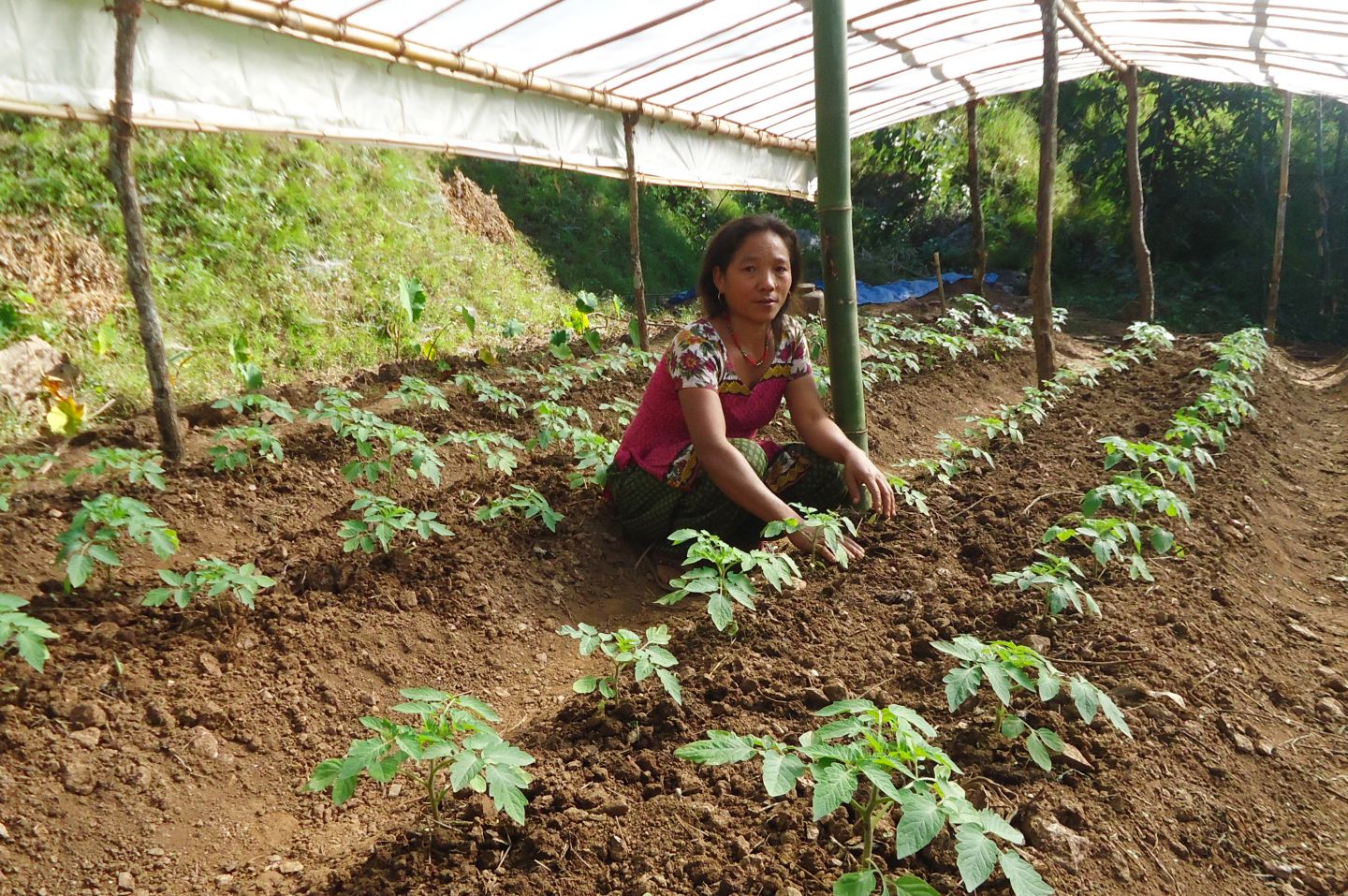The journey out of poverty and towards equality is a though one in Nepal. The patriarchal society hinders women in taking stand-alone decisions and in pursuing income-generating opportunities. Although many gender norms and relations still need to be broken, positive signals are coming up with regards to women’s economic empowerment.
Compared to a few years ago, an increasing number of women are engaged in small and medium-sized enterprises (SMEs). Being a successful woman entrepreneur means increasing her own direct control over resources, developing self-confidence and gaining a role within the family and community amongst others.
In Nepal, over 80 percent of women are employed in agriculture, which contributes one-third of the gross domestic product (GDP). Ramila Rai, wife and mother of three, has been involved in agriculture over the past two years, growing vegetables and fruits. This activity has provided her with financial autonomy and contributed to her family’s welfare. Her husband’s income was not enough to live decently.
Her ambition and strong potential led her to the economic empowerment Programme, run by the Centre for Rural Technology, Nepal (CRT/N) and supported by ENERGIA. The Scaling up Energy Access through Women’s Economic Empowerment Project (WEE Nepal) trained her in sales, helped her make strategic business decisions, taught her to negotiate with suppliers, and also facilitated interactions with local financial institutions.
Starting a new business was not easy for her. She faced a number of challenges, from insects killing the vegetables and fruit to price fluctuations, which undermined her self-confidence. However, this journey built her confidence and pushed her to step out of her comfort zone. She expanded her business further, adding four extra plastic tunnels for more cultivations.
In 2019, she was awarded the “Best Entrepreneur” prize, supplied by the Halesi Municipality – Khotang, for her outstanding work as a vegetable farmer. “I can’t explain how much support I get from Mr. Likh Ram Chaudhary (Business Development Coordinator from WEE Nepal Project). He came into our life as a guiding star, I pray to God to provide him, success and happiness wherever he goes. Also, this would not have been possible without the support from my husband” said Ramila during the celebration.
Her business represents a step forward in the right direction. Beyond the everyday challenges and factors that constrain women’s inclusion in male-dominated sectors, these women-led enterprises have the potential to transform power relations within the Nepali society, contributing in improving women’s and men’s quality of life equitably.







